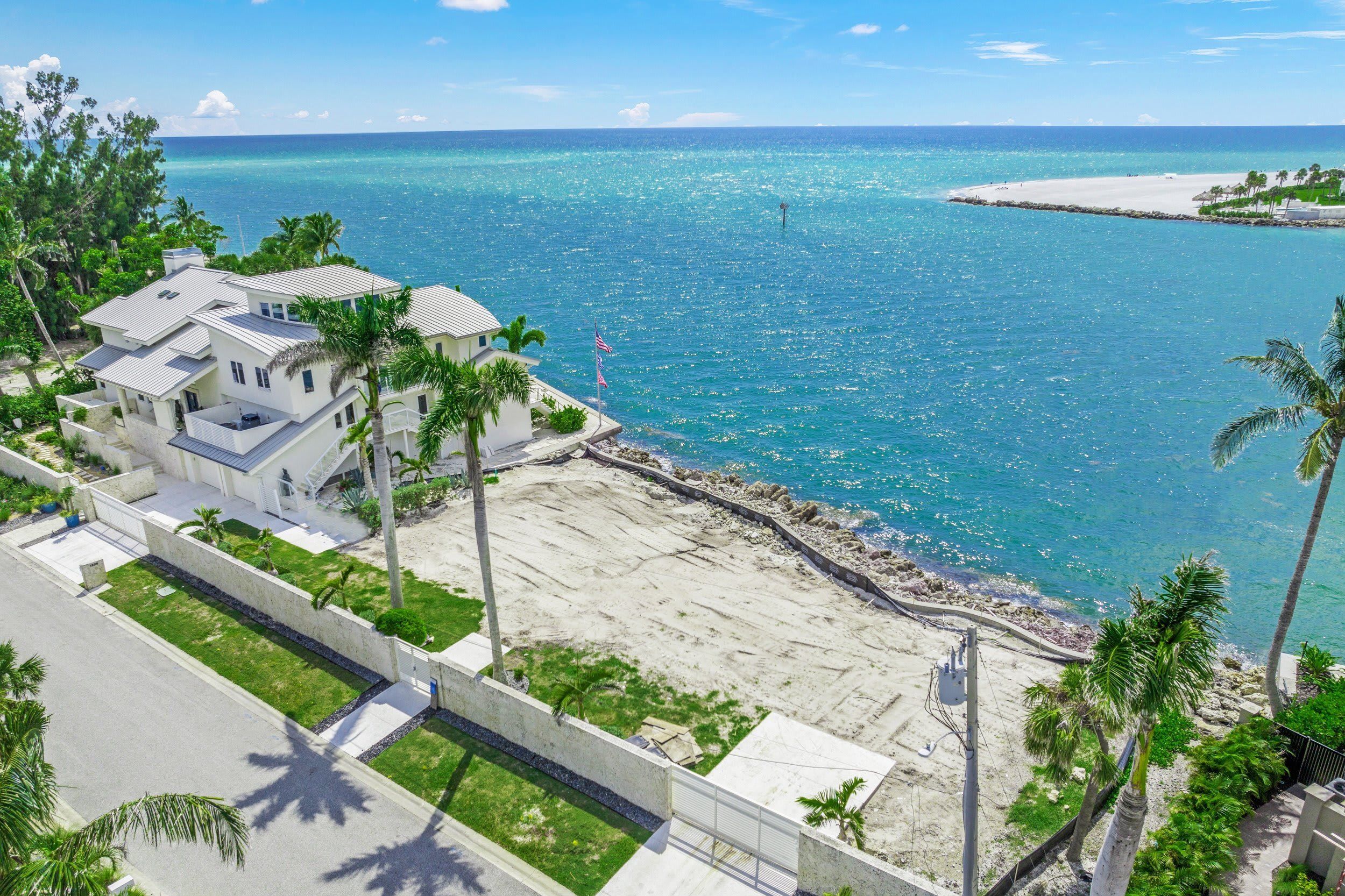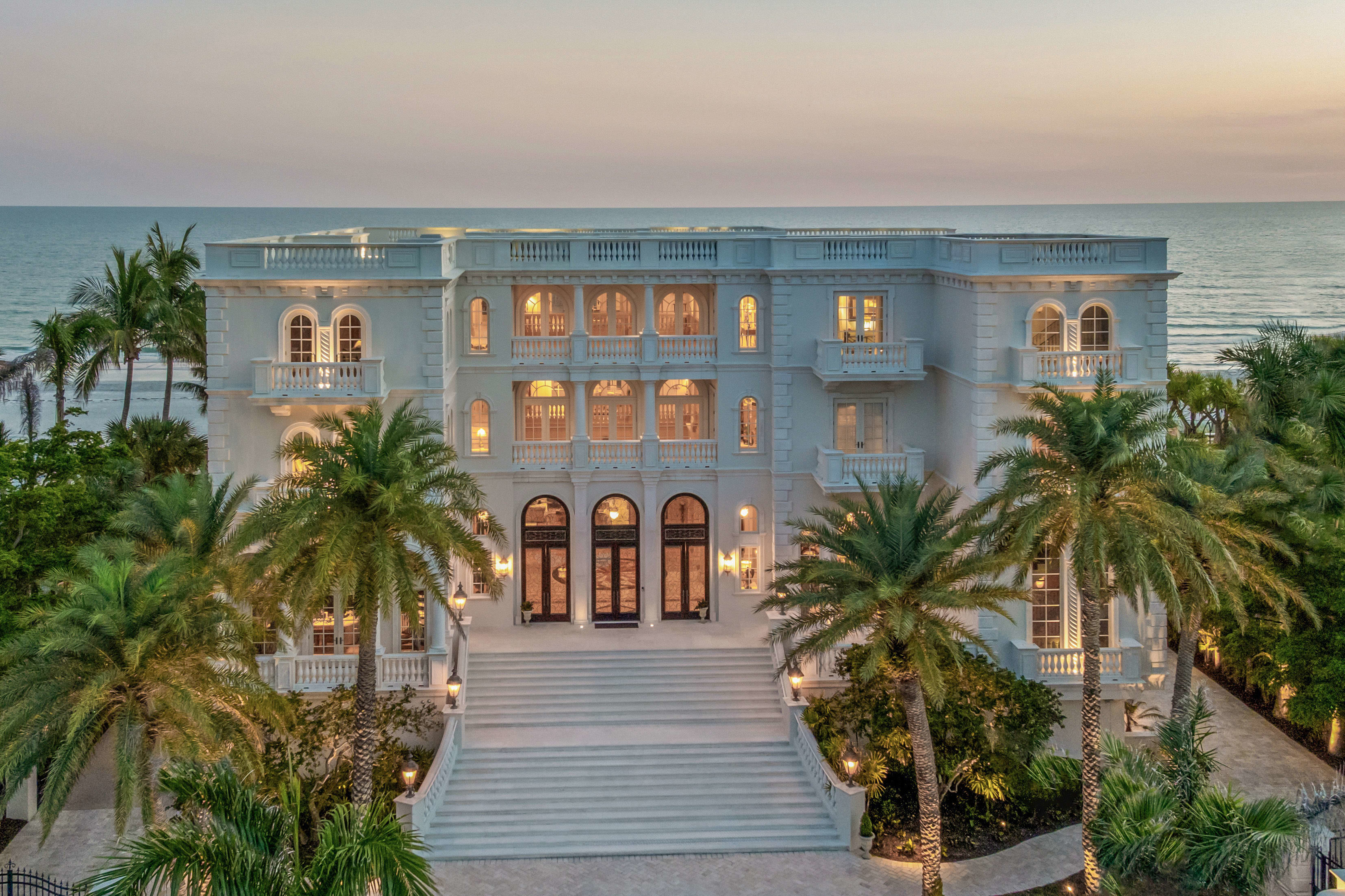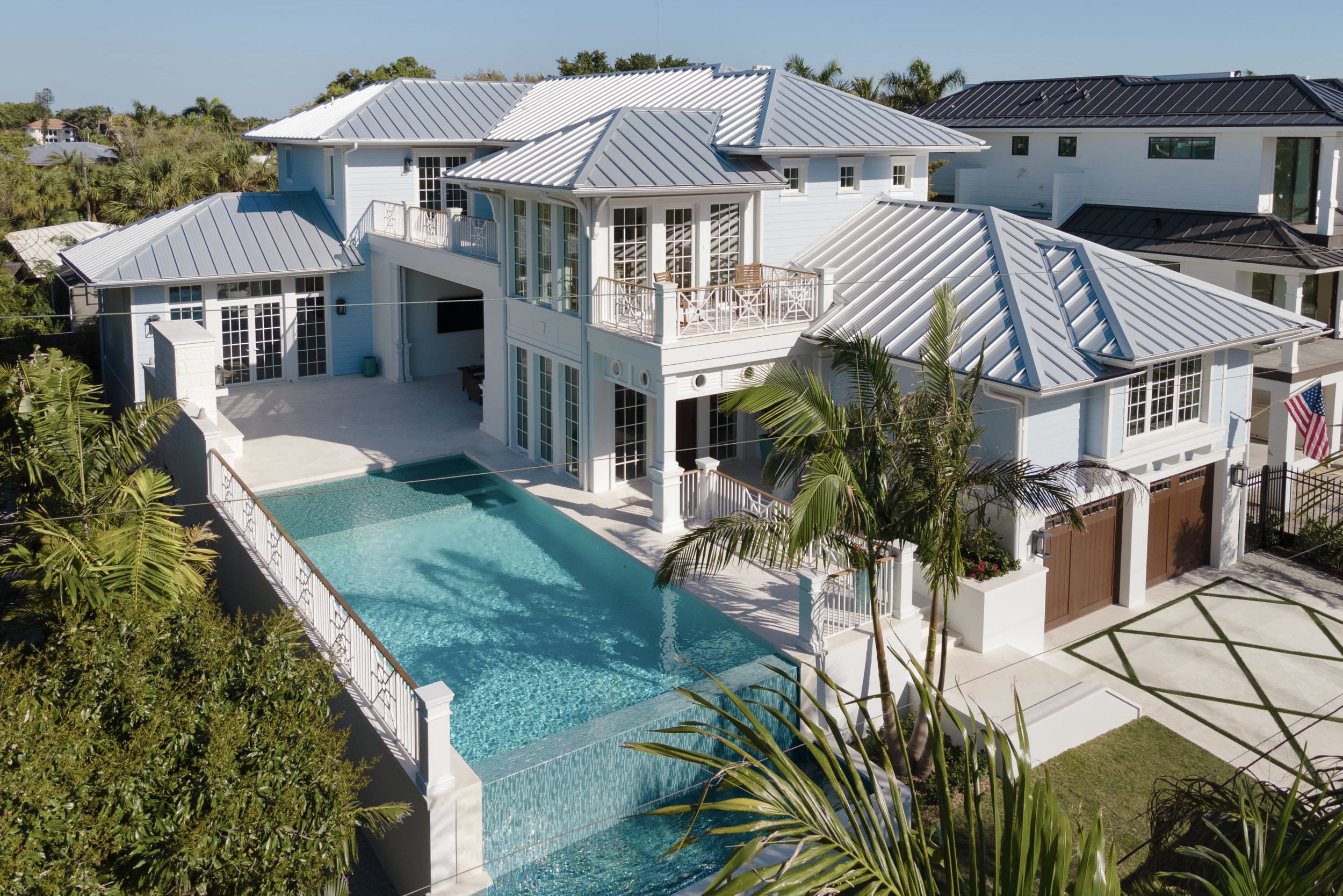Home Tour: A Polynesian-Inspired Compound on Jewfish Key

Image: Febre Frameworks
Wild inconvenience or boater’s bliss? Either way, the Polynesian-themed island compound located at 7147 La Lenaire Drive on Jewfish Key, accessible only by water, is a stunning beach getaway that guarantees no solicitors and maximum privacy.
It’s one of just eight homes on the island and was recently remodeled with a minimal touch that was nevertheless a huge undertaking. “We wanted to account for every piece of wood you need to bring over, because if you forget something, you lose a whole day,” says Michael Mincberg, one of the homeowner investors and the president of Tampa’s Sight Development.

Image: Febre Frameworks
“Island construction is expensive, complicated and inconvenient, but we get it done in the same amount of time as on land,” says Steve Ellis of Ellis Consulting Group, which handled the project and has built three homes on the island, including Ellis' own.
Mincberg and the rest of the investors, among them developer Shawn Kaleta, who owns numerous vacation rentals in the area, bought the home in 2021 for almost $1.8 million and got to work. “Even though it’s luxury, we kept it minimalist to show off the original vision, which is island living,” says Mincberg. The construction team installed a new roof, air conditioning system, wiring and plumbing, updated the kitchen and bathrooms, and—trickiest of all—put in a new inground pool.
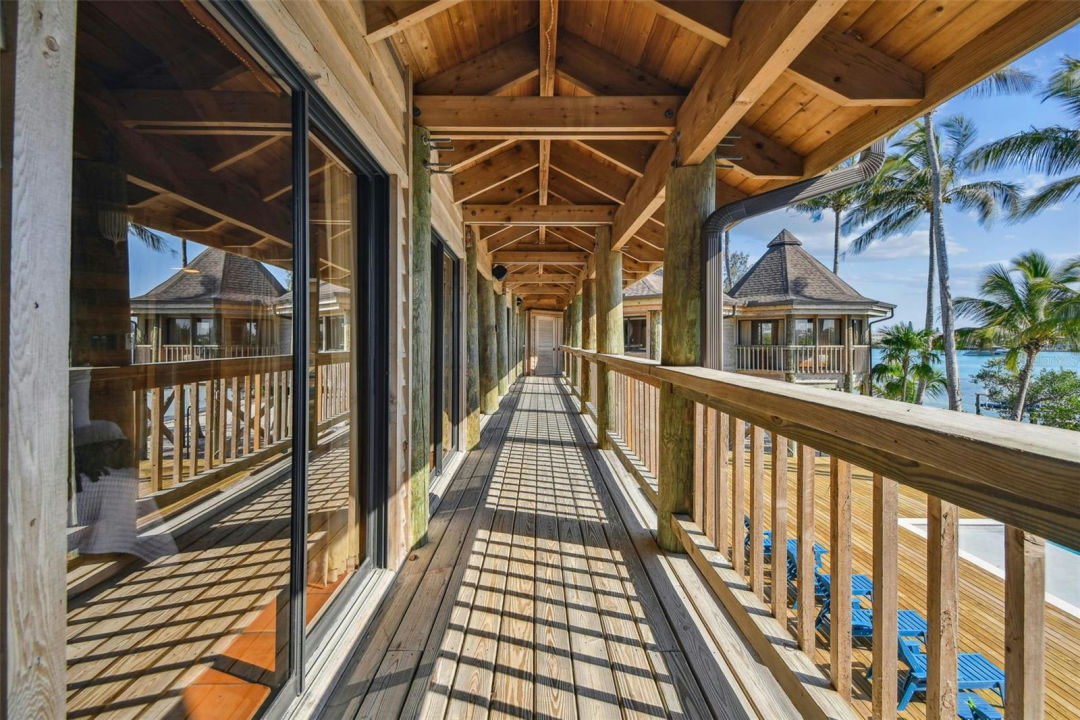
“Typically you bring a concrete truck and pump the stuff into the forms, but we couldn’t get a truck over here,” says Ellis. “We brought over a mixer and mixed on-site. It required a lot of manpower—it’s not for wussies.”
Originally built in 1990, the home has a Polynesian look, with several separate pods connected by outdoor walkways. It’s large—two floors span 3,503 square feet, with five bedrooms and six bathrooms. The structure has a castaway island feeling thanks to lots of exposed wood, with spectacular beamed and vaulted ceilings, and windows frame water views. The home is elevated 18 feet, and there’s a dock and a private beach. During the remodel, a Jet Ski lift was added.
The home was initially listed for almost $9 million. The owners declined to share the cost of the renovation, “but to build the same structure today from the ground up would cost at least the asking price, and that’s if you could find an empty lot in a location like this,” says Ellis.

Image: Febre Frameworks
Jewfish Key is an intimate, magical place of 38 or so acres. Originally, it was two islands—Pickett Key to the north and Fisherman’s Key to the south—with separate owners. When the Intracoastal Waterway was dredged in the late 1930s, the owners agreed to let the U.S. Army Corps of Engineers deposit the spoil between them to create a single island—if they could become co-owners. It’s said that the deal was sealed with a case of whiskey.
Joan Bergstrom, sister of real estate mogul Michael Saunders, developed the key in the late 1980s and reduced its density to create 13 buildable lots, each at least an acre. Local lore has it that Spaniards buried treasure here in the 1500s. Other tall tales Mincberg has heard include a story about hogs brought to the island to eat the snakes overrunning it. “But I’ve never seen hogs or snakes,” he says.
The island’s current residents, who pay property taxes but don’t benefit from government services like trash removal in the same ways that other Longboat Key residents do, applied for de-annexation and reviewed a detailed report on the topic from the Town of Longboat Key earlier this year. If the de-annexation petition had been approved, Jewfish Key would have become a part of unincorporated Manatee County and thus been exempt from Longboat Key’s rules, including its short-term rental ordinance, which requires a minimum stay of at least 30 days. The residents ultimately decided against de-annexation.
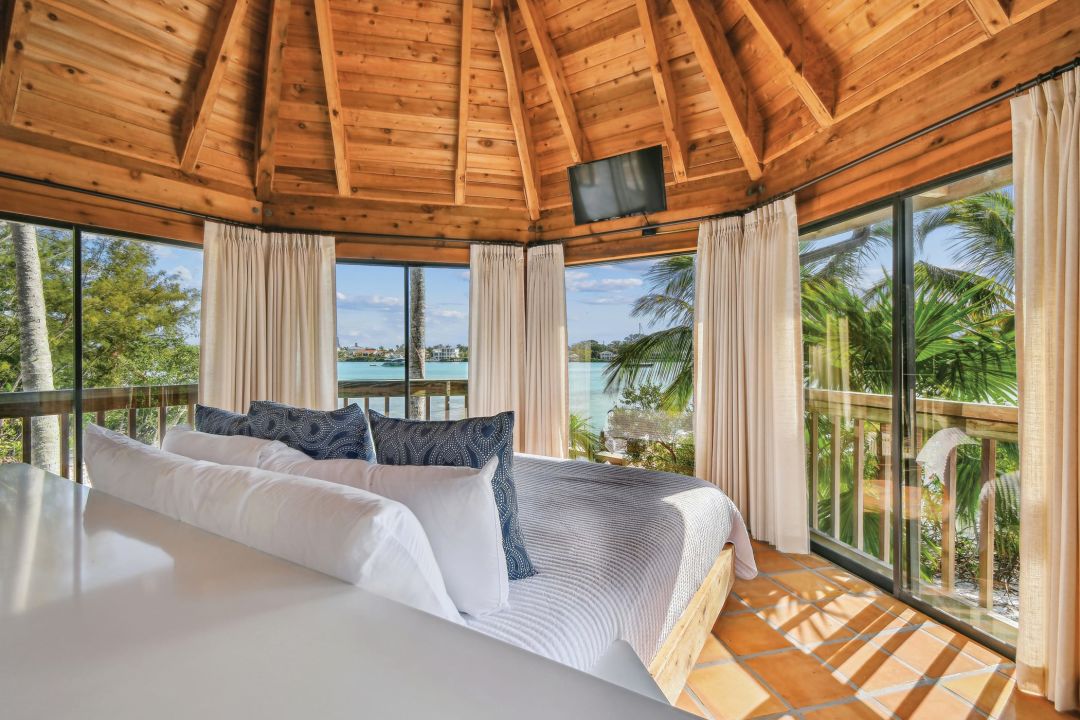
Image: Febre Frameworks
“We had a week before the meeting and withdrew our application due to a lack of time to review the report,” says Ellis. “Our main issue was the difficulty of renting properties on a monthly basis. We preferred weekly rentals. Renting for $15,000 a week is easier than $60,000 a month.” For now, the question has been shelved.
With the postcard-perfect bliss, why sell? “Because this is what I do,” says Mincberg. “We develop real estate and sell it for a profit. But it’s bittersweet on this one. The term ‘trophy asset’ is thrown around a lot. I think it applies here.”

